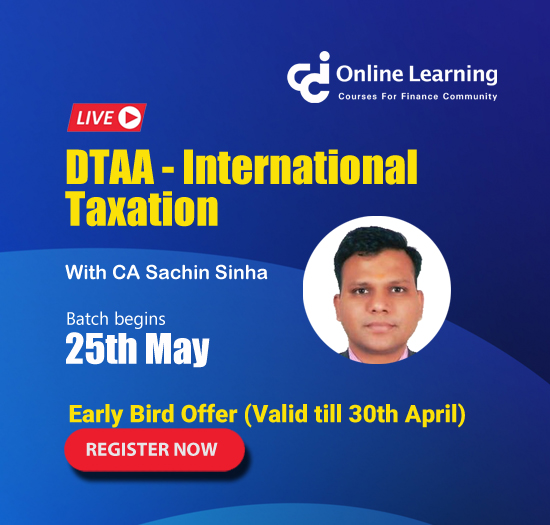Arjuna (Fictional Character): Krishna, the government has brought the provision of TCS (Tax Collected at Source) on sale of every product or service in income tax and everywhere a debate or discussion on it is going on. What exactly is there in this TCS provision?
Krishna (Fictional Character): Arjuna, the population of India is 125 crores whereas the taxpayers are just 5 crores. The purchasers of motor car and gold are in crores. From where do these people get money? For this, the government has come up with this provision. Earlier the provision of TCS was applicable only on specified products. But from 1st June 2016, the scope of TCS has been increased. Now the provision of TCS is applicable on sale or purchase in cash of every product and some limits are specified for the applicability of this provision. Due to this, the government would be able to trace the transactions of large amount in cash and it will curb black money.
Arjuna (Fictional Character): Krishna, what is the provision of TCS?
Krishna (Fictional Character): Arjuna, if any of transaction effected is covered under TCS provision, then the purchaser will have to give 1% TCS to the seller and the seller will have to deposit the same with the government and file return of TCS. For e.g. If a person purchases clothes of Rs. 2,20,000/- in cash, then he will have to pay 1% TCS on 2,20,000/- i.e. Rs. 2,200/- extra to the seller and the seller will have to deposit the same and file its return. Every person can take the credit of TCS deposited in his name while filling income tax return. This means that he have to subtract TCS from income tax liability then have pay income tax or obtain refund.
Arjuna (Fictional Character): Krishna, on purchase of which products TCS is applicable?
Krishna (Fictional Character): Arjuna, earlier TCS was applicable on alcoholic liquor, scrape at the rate of 1%, on tendu leaves at the rate of 5%, on toll plaza and parking lot charges at the rate of 2%. But the government has now made it applicable on the sale of following products or services:
1. If jewellery is sold above Rs. 5 lakh in cash, then TCS will have to be collected on it at the rate of 1%.
2. If bullion is sold above Rs. 2 lakh in cash, then TCS at the rate of 1% will have to be collected on it.
3. If any other product or service is sold for above Rs. 2 lakh in cash, then TCS will have to be collected on it at the rate of 1%.
4. If motor car is sold for above Rs.10 lakh in any mode i.e. be it in cash or through bank, TCS will have to be collected on it @ 1%.
Arjuna (Fictional Character): Krishna, what are the important points to be noted in this TCS provision?
Krishna (Fictional Character): Arjuna, following are the important points in this TCS provision:
1. If the amount of sale is above Rs.2 lakh but some amount is paid in cash and the remaining through bank and amount paid in cash does not exceed Rs.2 lakh, then TCS will not be applicable on such transaction. For example: If a product is sold for Rs. 3 lakh and Rs. 1.5 lakh is received in cash and Rs. 1.5 lakh is received by cheque, then TCS will not come on it.
2. If the amount of sale or purchase in cash goes above Rs.2 lakh, then TCS will be applicable on only cash component. For example: If a product is sold for Rs. 5 lakh for this Rs. 3 lakh received in cash and Rs. 2 lakh received by cheque, then TCS at the rate 1% of Rs. 3 lakh i.e. Rs.3,000/- will have to be collected.
3. TCS is applicable to the retailer of motor car. The TCS provision of sale above Rs. 10 lakh is not applicable to manufacturer or distributor. For example: The provision of TCS is applicable if a seller sells car to customer.
4. The provision of TCS will not be applicable on the products or services on which TDS is applicable.
These TCS provisions has created various questions. They will be solved only after understanding its provision in law. People have to bear the burden of TCS even for purchase for agriculture, household or for investment activities.
Arjuna (Fictional Character): Krishna, what will happen if the provision of TCS is not followed?
Krishna (Fictional Character): Arjuna, if the provision of TCS is not followed then:
- If the seller does not collect TCS, then he may have to pay 100% penalty on it.
- If the TCS return is not filed, then a penalty up to Rs. 10,000/- can be levied.
- If TCS is deposited late, then interest will be levied on it.
- Late fees of Rs.200/- per day will be levied if TCS return is not filed within time.
Arjuna (Fictional Character): Krishna, what should people learn from this TCS provision?
Krishna (Fictional Character): Arjuna, the government has made compulsory quoting of PAN for sale or purchase above Rs.2 lakh from 1st January 2016 onwards. In the same way the provision of TCS has been made applicable on sale or purchase above Rs.2 lakh. The government is bringing new provisions so as to reduce the transactions in cash and to curb black money. Now every person shall be careful while effecting purchase or sale above Rs.2 lakh. Firstly, PAN will have to be quoted and in some transactions TCS will be applicable. Now the scope of TCS will increase and it will affect everyone. TCS is applicable on purchase or sale for household activities also. That is why the seller will have to bear the burden of following the law and the purchaser will have to bear the burden of TCS.





 CAclubindia
CAclubindia


